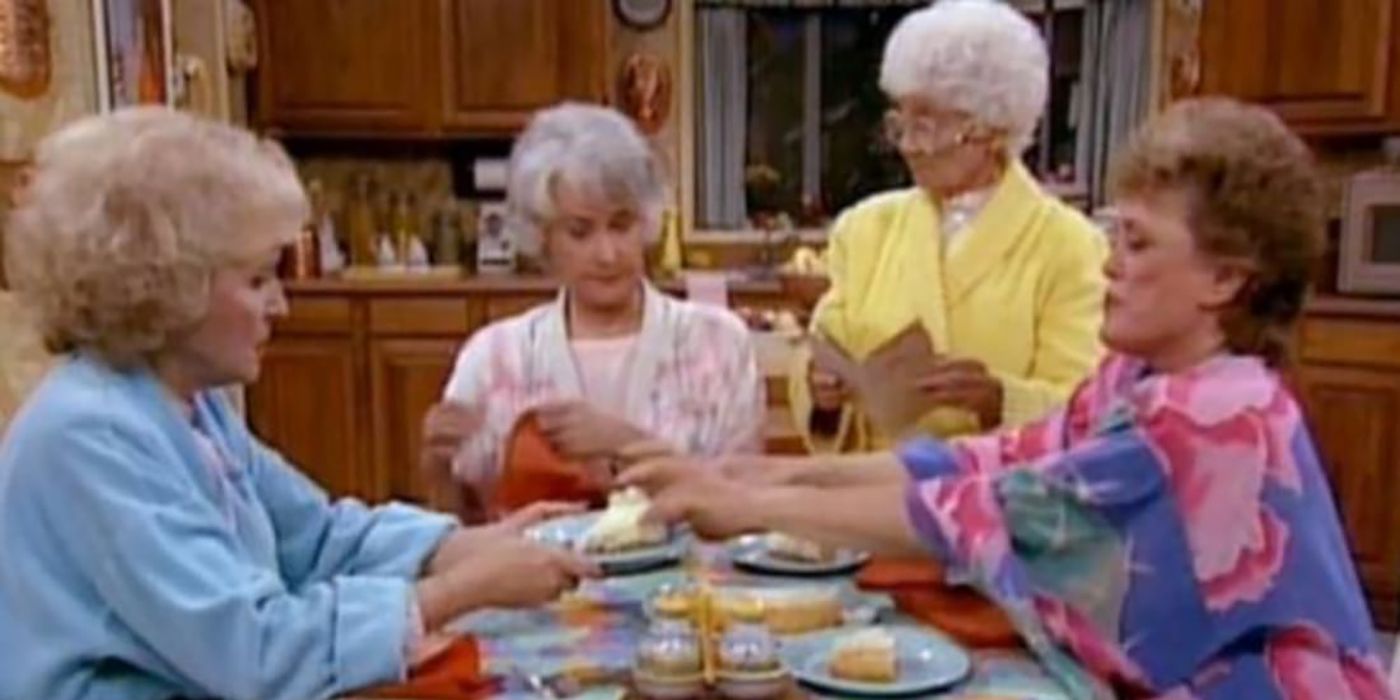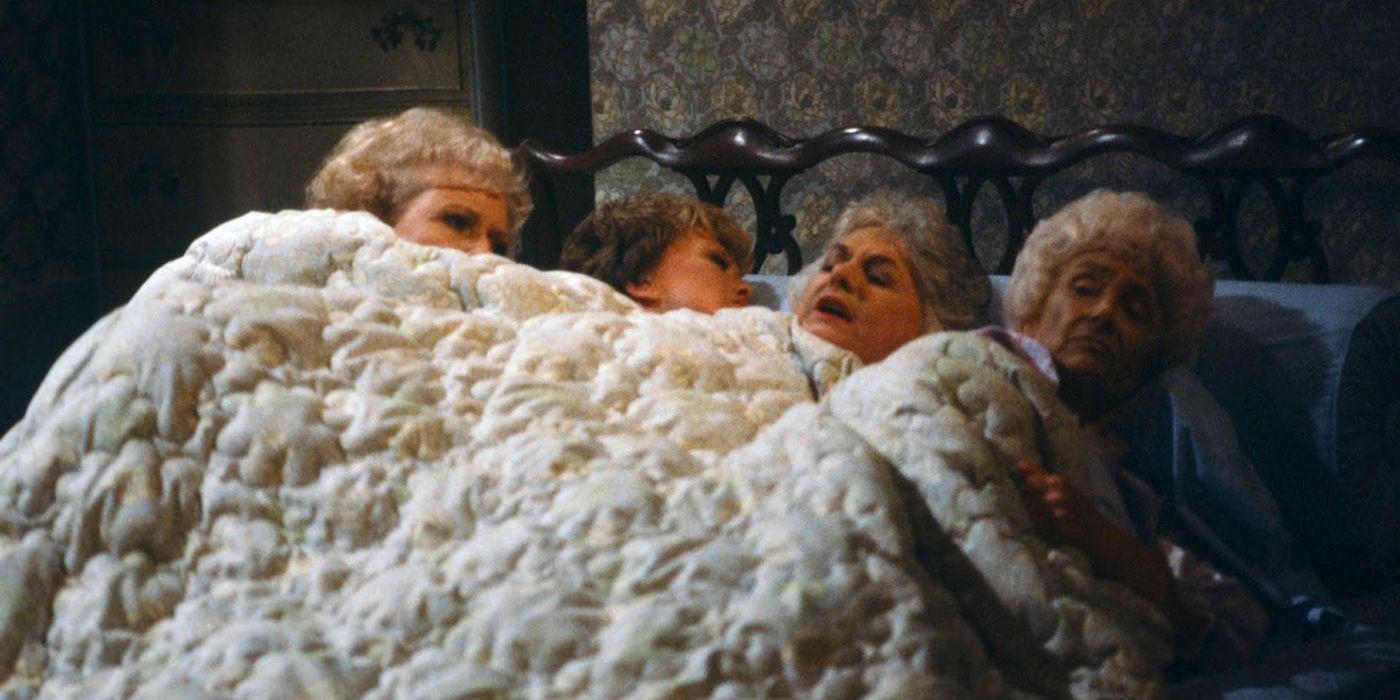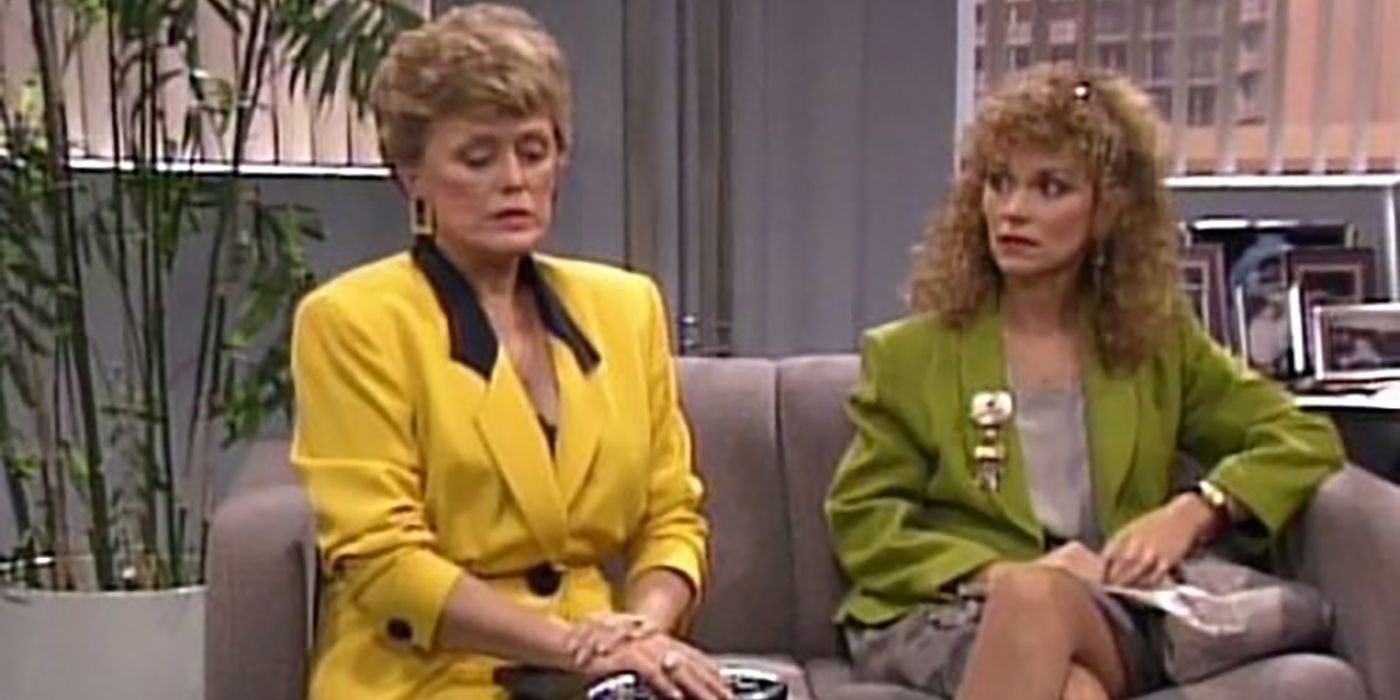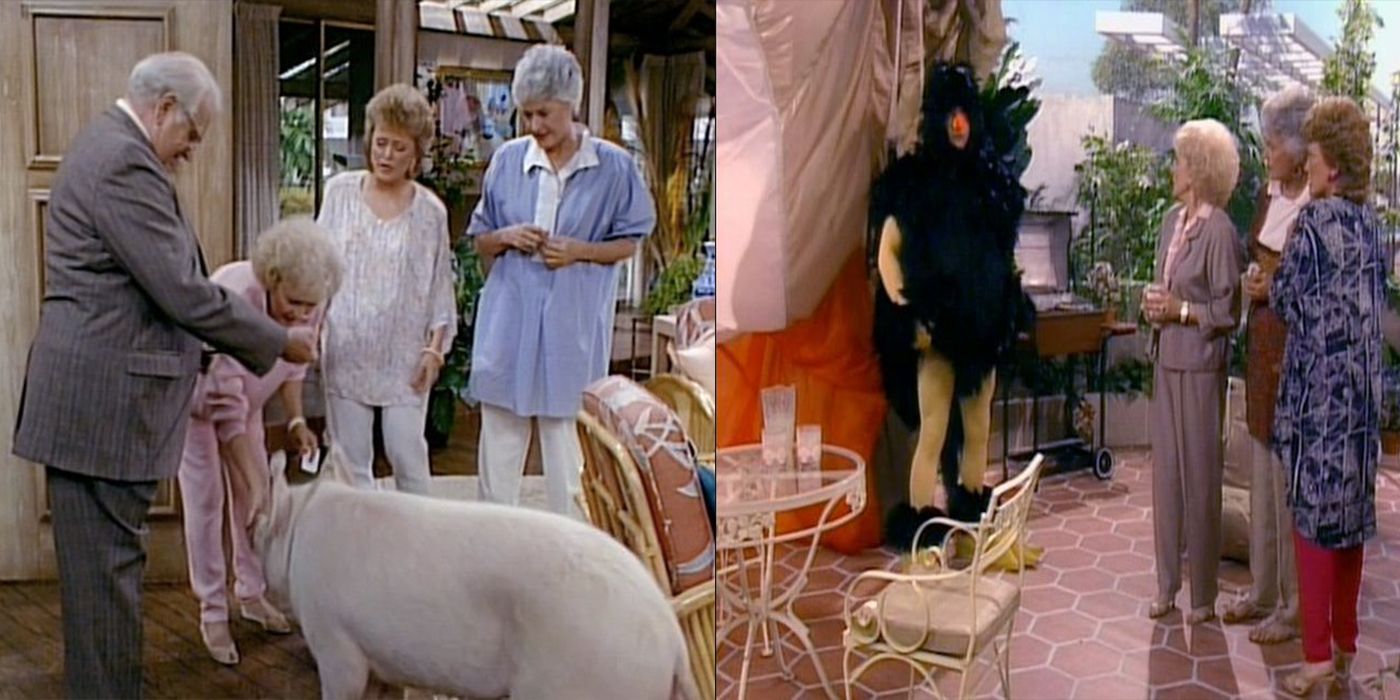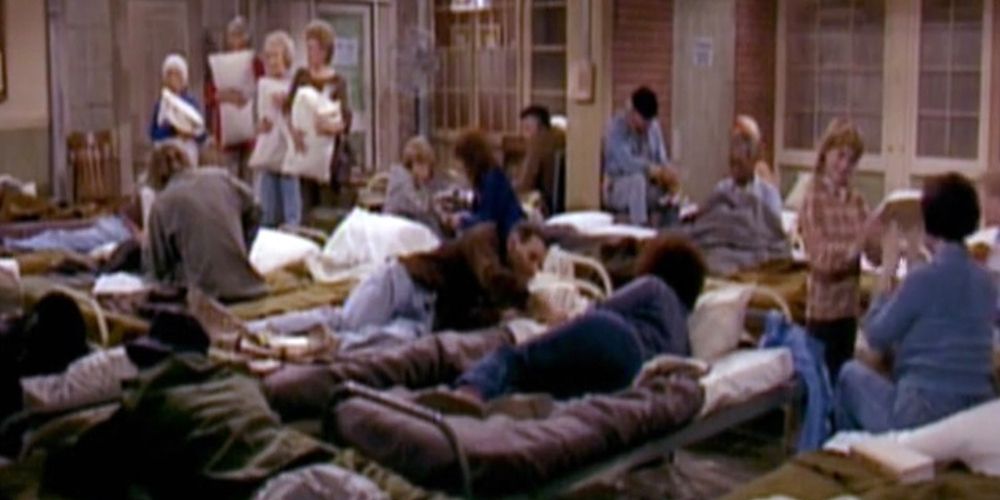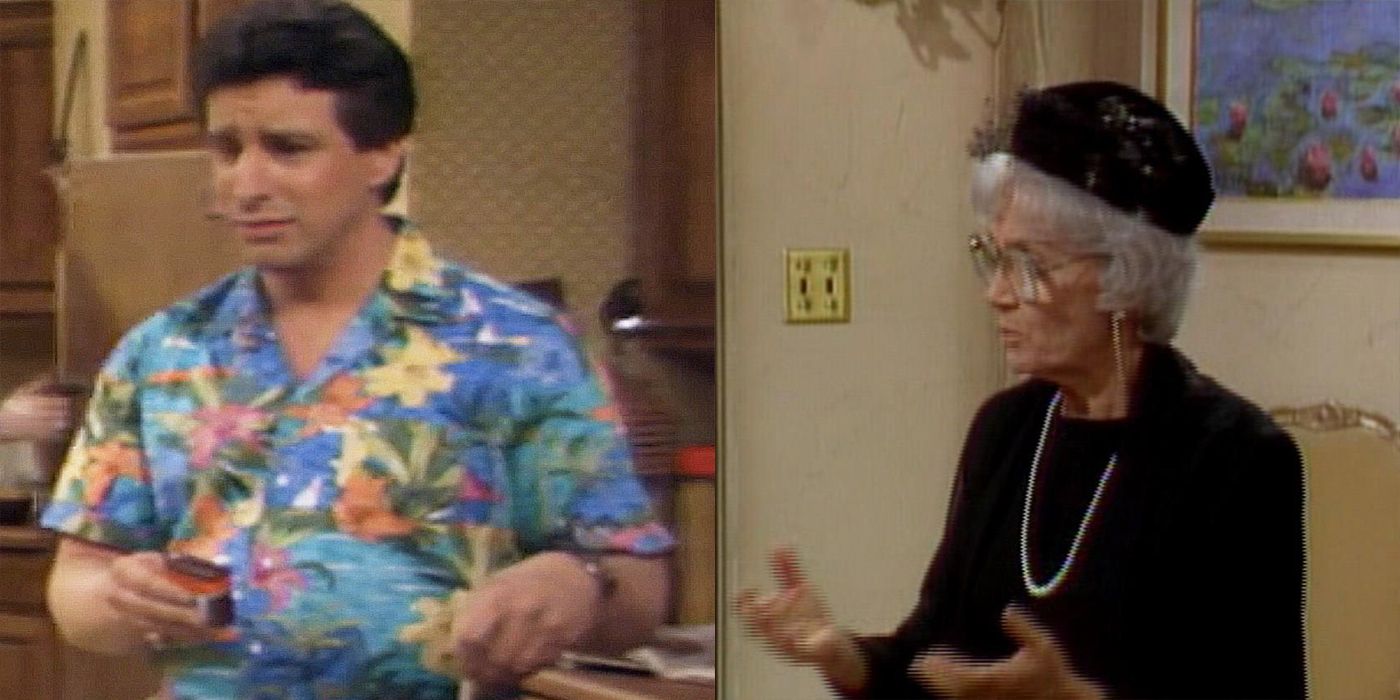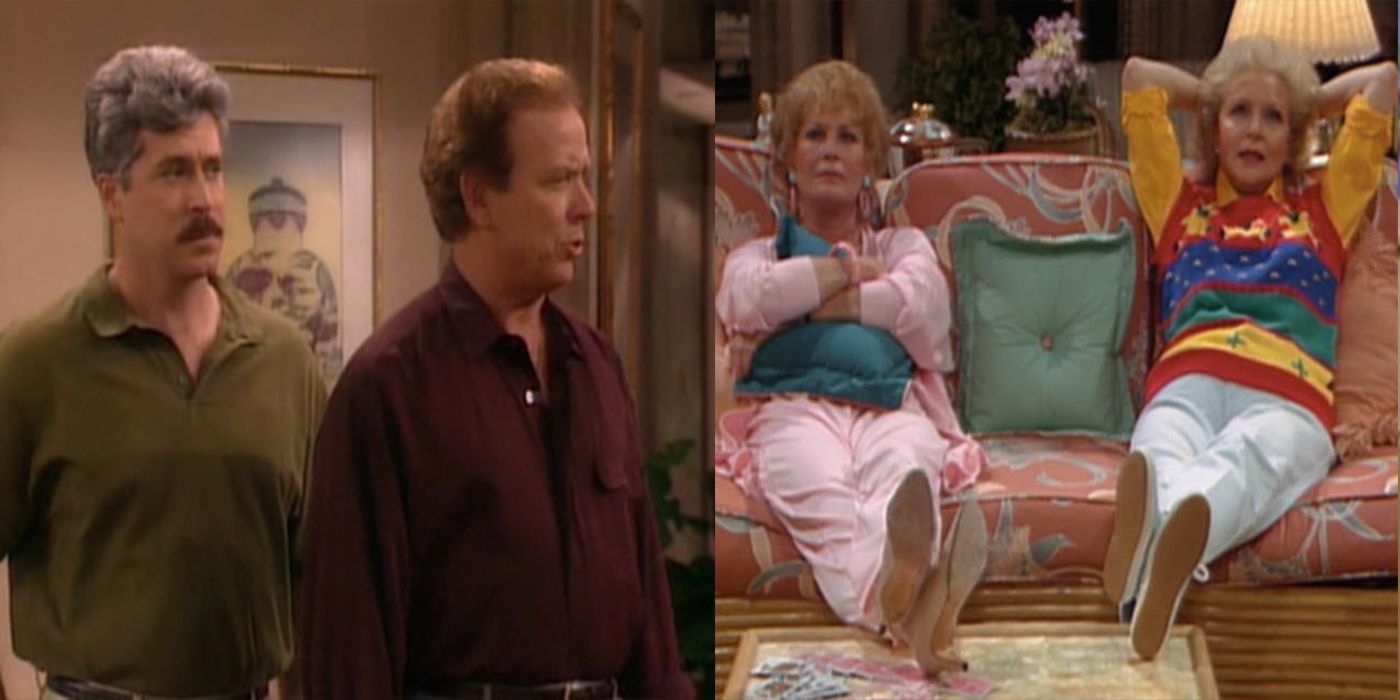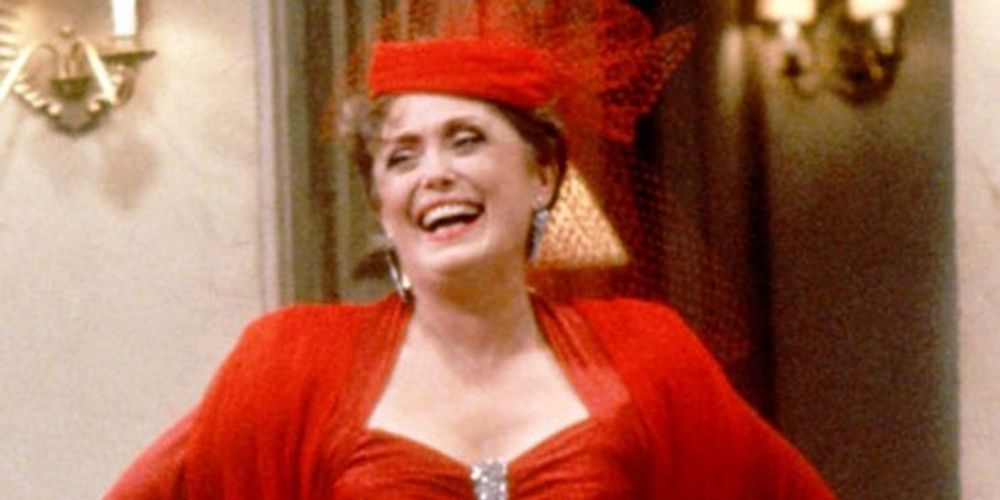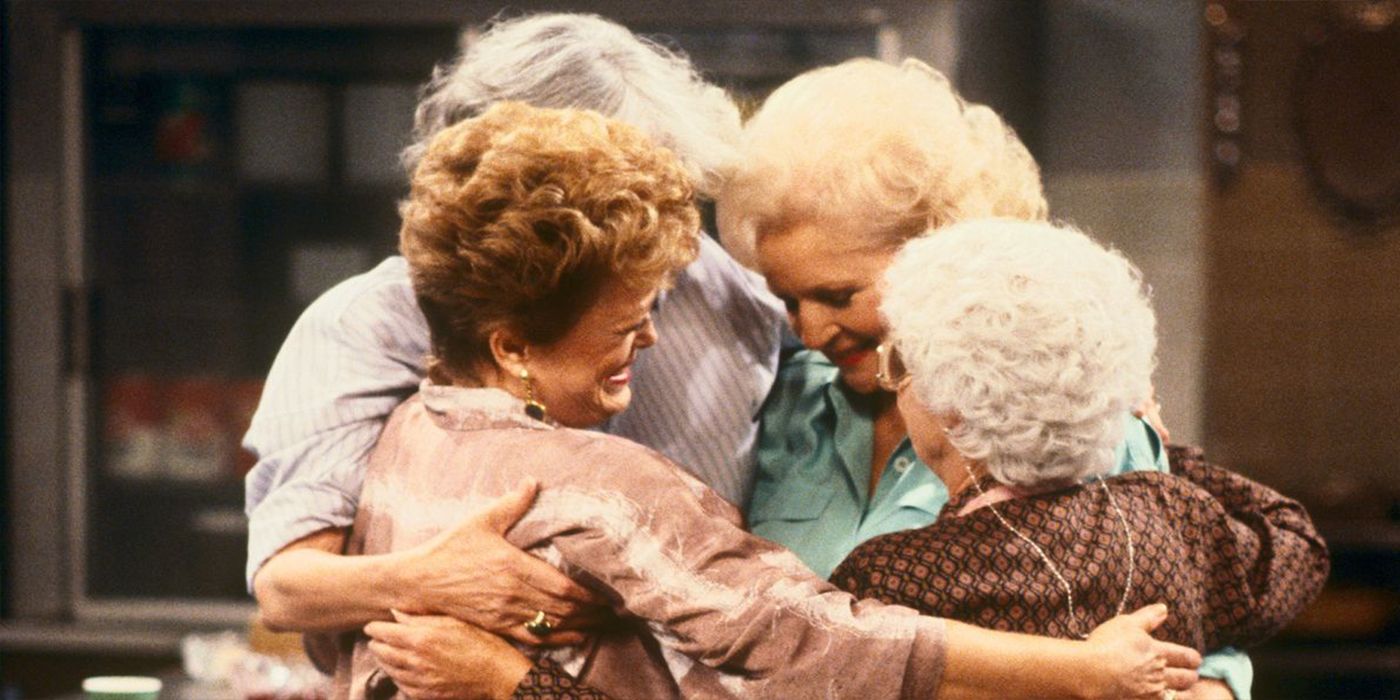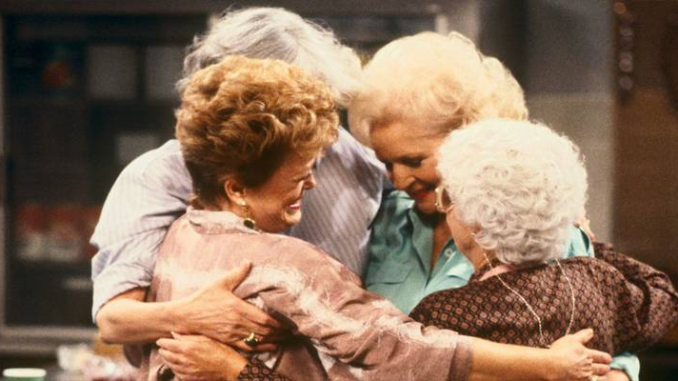
Thanks to Dorothy’s one-liners, Sophia’s wryly sarcastic observations, Rose’s inane St. Olaf stories, and Blanche’s super-charged romantic escapades, The Golden Girls has earned its reputation as one of the funniest sitcoms ever. For seven seasons, the comedic quartet kept ‘80s audiences in stitches, and to this day, remains one of the few older sitcoms that can still entertain a modern audience.
This is due in no small part to the forward-thinking of its writers, who were able to address multiple issues that in retrospect seem ahead of their time. However, the Girls were still a product of their time, and in some ways seem anachronistic.
Ahead Of Their Time: Risqué Humor
The Golden Girls typically aired at or after 9 PM on Saturday nights, which meant it could get away with more risqué humor. The Girls didn’t disappoint on that score, and many shows were heavily laden with hilarious allusions and double entendres. Of course, the humor wasn’t overt, but even the least discerning viewer could pick up on the meaning.
For example, when Dorothy returns from an amorous adventure with Stan in his Studebaker one night, the other Girls ask her who made the first move. Her response of “I guess I did, but I swear I thought I was setting the parking brake” is hilariously emblematic of the show’s sometimes raunchy humor.
Stuck In The Past: Clip Shows
It wasn’t uncommon for many sitcoms of the past to do “clip shows,” where they’d take sequences from previous episodes and splice them together with some form of framing device. The technique allowed for sitcoms to squeeze in another episode or two to meet their (typically) 24-episode season order inexpensively.
The Golden Girls was not immune to this technique and had its fair share of clip shows throughout their 7 seasons. Although the Girls had many hilarious moments to draw from, this dated technique went to the well too often, as some clips featured on these shows were overused.
Ahead Of Their Time: Single Motherhood
These days, a woman deciding to have and raise a child on her own is something that is respected, however, back in the ‘80s, it was still considered taboo. Thankfully, public consciousness has accepted the idea of single motherhood, bolstered by its depiction in sitcoms like Murphy Brown and The Golden Girls.
In the later seasons of the show, Blanche’s daughter, Rebecca, decides to have a child by artificial insemination. Blanche is initially disapproving of the idea due to the social stigma surrounding it at the time. Eventually, Blanche comes around to supporting her daughter, mirroring society’s acceptance of a woman’s choice to have a family on her own.
Stuck In The Past: “Jump The Shark” Moments
When a sitcom is on for a few years, there’s a tendency to have the plots skew more towards the improbable and zany as writers try to find new and entertaining things for the characters to do. Oftentimes, this is far out of line with the original vision of the show, as evidenced in the infamous Happy Days episode where the Fonz jumped over a shark in a surfing contest.
The Golden Girls had several potential candidates for a “jump the shark” episode that seemed too zany or ridiculous for a show that was so innovative in its premise, such as the time the girls had to care for a pig or were afraid of a housekeeper who allegedly cursed them.
Ahead Of Their Time: Social Commentary
Bea Arthur, who played Dorothy Zbornak, was no stranger to dealing with topical issues in a sitcom format. Her previous show, Maude, made it a point of presenting social commentary on issues such as domestic abuse, suicide and addiction, and abortion in a pointed way. The Golden Girls continued that polemical discourse, though oftentimes in a more subtle way.
Issues such as nuclear war, assisted suicide, and the A.I.D.S. epidemic were all tackled by the show in its seven-year run. However, one of the most poignant episodes was one in which the Girls visit a homeless shelter looking for a winning lottery ticket. Moved by the plight of people less fortunate than themselves, the Girls donate the money to the shelter.
Stuck In The Past: Catering to Stereotypes
The Golden Girls may have been progressive in many ways but they weren’t above sometimes catering to stereotypes to garner a laugh. Oftentimes, this took the form of Sophia referring to her Sicilian heritage as nebulously being related to organized crime, but as a point of pride. For example, she bragged about being part of a family who “never left a body to be found,” or who “threw priests out of windows.”
Moreover, one episode actually had Blanche and Rose appear with mudpacks on their faces when a Black family was visiting the house; a throwback to racist entertainment tropes and stereotypes. For such a progressive show, catering to stereotypes of any kind was definitely an unnecessary step backward.
Ahead Of Their Time: Treatment of LGBTQ+ Characters
One of the most important ways in which The Golden Girls was ahead of its time was in its treatment of LGBTQ+ characters. At a time when discrimination towards the LGBTQ+ community was high and representation on television was non-existent or stereotypical, the show did its best to present LGBTQ+ characters as normal, fully integrated members of society.
This may be in part to Bea Arthur’s influence, who had long been a supporter of the LGBTQ+ community. Although the show sometimes relied on stereotypes for a laugh (read: Coco the chef), the prevalent attitude of the show came through when Sophia tells Dorothy, “I’ll tell you the truth, Dorothy. If one of my kids was gay, I wouldn’t love him one bit less. I would wish him all the happiness in the world!”
Stuck In The Past: Slut-Shaming
A big part of the appeal of The Golden Girls was that it wasn’t afraid to show its audience that there was life after fifty, including having its protagonists enjoy healthy and active sex lives. Leading the pack in that regard was Blanche, who made no qualms about her love of sex, years before Sex and the City banked on the idea.
Unfortunately, her roommates often judged her harshly for how she lived her life, rather than celebrate the fact that she was a grown woman exercising her own choices. Each of them, in turn, has made disparaging remarks about Blanche being a “slut” despite her having full agency over her actions and being happy with them.
Ahead Of Their Time: Life Begins After 50
Perhaps the most enduring legacy The Golden Girls left television was showing the audience that middle-aged women were not just widows and grandmothers. Despite the hardships that life threw at them, Dorothy, Blanche, Rose, and Sophia were resilient enough to not only survive but thrive.
The Girls may have spent a lot of time in the kitchen with some cheesecake, but they led active, fulfilling, and challenging lives in their “golden” years, pursuing degrees, changing careers, actively dating, and going on many vacations. Strong, capable, and willing to get the most out of life, the Girls showed their audience that anything is possible with the proper love and support!
Stuck In The Past: Blanche’s Heritage
From Rose’s reverence of St. Olaf to Sophia’s love of Sicily, the Girls have always been proud of their heritage. Blanche has been no exception in that regard, idealizing the decorum and gentility of the South and fancying herself a true Southern Belle.
However, there are problematic aspects to her idealizations, as her misty-eyed recollections seem to omit the deep racial divides and prejudices that still exist in the South. She seemed to have turned a corner when the Daughters of the Old South rejected her application for group membership on the count of her “northern” ancestry, but it was only in the Golden Girls spin-off, The Golden Palace, that she truly faced the dark side of her heritage.
